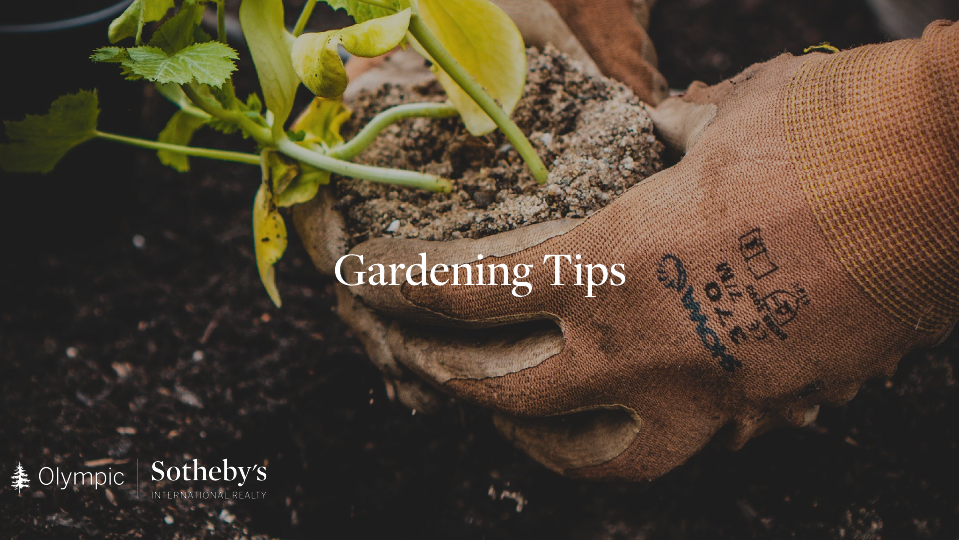
5 Great Gardening Tips for the Spring
The weather is all over the place here in Olympia. One day it's beautifully sunny and a balmy 65 degrees, the next day, it's hailing, and you need to bring back out your winter coat. That can only mean one thing...Spring is finally here! That means it's time to start thinking about our gardens! Whether you're an experienced gardener or just starting out, these five tips will help you make the most of your spring gardening season.
Start with a Clean Slate
Before you start planting, it's important to clear out any debris that may have accumulated in your garden over the winter. Remove any dead leaves, branches, or plants that didn't survive the colder months. This will give you a fresh canvas to work with and also help prevent any diseases from spreading to healthy plants. Additionally, you might want to prepare the soil by adding organic matter like compost or manure. This will not only enrich the soil but will also help retain moisture.
Choose the Right Plants
When selecting plants for your spring garden, it's important to consider the climate in your area. Make sure that the plants you choose suit your region's temperature and soil conditions. Consult with a local nursery or gardening expert if you're unsure which plants will thrive in your area. Consider factors like the amount of sunlight and shade in your garden and your soil type. You might want to choose plants that are native to your area, as they will be better adapted to the local climate.
Get Your Soil Ready
Preparing your soil is a crucial step in successful gardening. Test your soil to determine its pH level and nutrient content. Add any necessary amendments, such as compost or fertilizer, to ensure that your soil is rich in nutrients and ready to support healthy plant growth. You might also want to consider mulching around your plants, as this will help retain moisture and suppress weeds.
Water Your Plants Correctly
Proper watering is key to ensuring your plants thrive. Overwatering can lead to root rot, while underwatering can cause plants to wilt and die. Water your plants deeply and infrequently, allowing the soil to dry out slightly between waterings. Consider using a drip irrigation system to ensure that your plants get the right amount of water without wasting any. You might also want to water your plants early in the morning, allowing the leaves to dry out during the day and reducing the risk of fungal diseases.
Don't Forget About Pest Control
Pests can wreak havoc on your garden, so taking steps to prevent them from taking over is important. Use natural pest control methods, such as companion planting or introducing beneficial insects like ladybugs or praying mantises. If you do need to use pesticides, choose organic options that are safer for the environment and won't harm beneficial insects. You might also want to consider using physical barriers like row covers or netting to keep pests away from your plants.
Conclusion
With these five tips, you'll be well on your way to a successful spring gardening season. Remember to start with a clean slate, choose the right plants, prepare your soil, water your plants correctly, and don't forget about pest control. Happy gardening! And remember, gardening is a process of trial and error. Don't be discouraged if things don't go as planned. Just keep learning and experimenting, and you'll soon be able to grow a beautiful and bountiful garden

